Composers 17th century
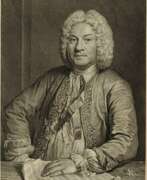

François Couperin was a French composer, organist and harpsichordist.
François Couperin is a member of a large dynasty of French musicians. At the age of 18, François succeeded his father, Charles Couperin (1638-1679), as organist at the Church of Saint-Gervais in Paris, and in 1693 he became one of the four organists of the Chapel Royal. He soon became a harpsichord teacher for the royal children, and in 1717 was appointed court harpsichordist.
François Couperin is known primarily for his harpsichord music; between 1713 and 1730 he published four books of more than 250 pieces for harpsichord. Some of them are characterized by complex accompaniment and dialogues between violin and bass, while others are light, graceful and expressive. Couperin's harpsichord pieces, even during the author's lifetime, gained great fame not only in France but also abroad. Couperin also wrote chamber music, including trio sonatas (for harpsichord and two violins) and "Royal Concertos", which he composed for Sunday evening royal entertainment. He also composed motets and other church music. Couperin's last and most significant liturgical work, Leçons de ténèbres (c. 1715), has no parallel in either French or Italian music of the period. Johann Sebastian Bach knew and appreciated this work by Couperin.
Couperin authored The Art of Touching the Clavier (1716), in which he explained in detail the technique of playing the harpsichord. And in his publications of the early 1720s, he suggested a wide variety of ways of combining French and Italian styles.
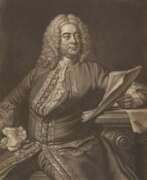

George Frideric Handel was a German-born English composer of the Baroque period.
After receiving a musical education, Handel worked briefly as an organist at the cathedral in Halle, then joined the violin section of the opera orchestra in Hamburg. After spending several years in Italy, he wrote many works there, including two operas. The style of Italian music permeated the composer's work throughout his life. Having become famous in Italy, in 1710 Handel was appointed Kapellmeister to the Elector of Hanover, the future King George I of England, and two years later he was already staging his operas in London.
In 1727 Handel became a British subject and was appointed composer to the Chapel Royal. In this capacity he wrote many musical works. From 1720 to 1728, operas at the Royal Theater in London were staged by the Royal Academy of Music, and Handel wrote the music for most of them.
In 1741, Handel wrote the most famous of his many oratorios, Messiah. Handel had a talent for musically portraying a human character in a single scene or aria - a gift he used with great dramatic power in his operas and oratorios. Although much of his music was vocal, Handel was also one of the recognized instrumental composers of the late Baroque era. Handel paid tribute to church music by composing many solemn hymns.
Handel's music has become an integral part of the national culture of England, and in Germany he is also honored as a major national composer.
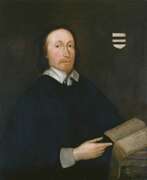

John Hilton the Younger was a British composer of the early Baroque period.
His father was the church musician, organist and composer John Hilton Senior, who died in Cambridge in 1609. Hilton Jr. earned a Bachelor of Music degree and became organist at St. Margaret's Cathedral in Westminster. In the 1630s he composed several oratorio-like works and later published a collection of 42 pieces. He is also credited as the author of several church hymns.
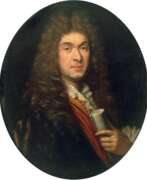

Jean-Baptiste Lully, born Giovanni Battista Lulli, was an Italian-born French composer, violinist, and conductor.
Lully spent most of his life working as a musician at the court of Louis XIV and became a French subject in 1661. He began composing music for court ballets in 1658 and collaborated with Molière on numerous comedy ballets between 1664 and 1670.
Lully is considered the leading composer of the French Baroque musical style, to which he contributed many of his own innovations. He composed several operas, chief among them the opera Armide, written especially for Louis XIV. Lully's other works include sacred works, dance music for various instruments, and suites for trumpet and strings.
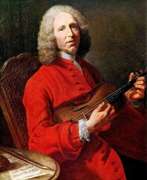

Jean-Philippe Rameau was a French late Baroque composer and music theorist.
Jean-Philippe's father worked as an organist all his life, so his son learned notes before he learned to read. He continued his musical education in Milan, playing the organ, violin and harpsichord. Rameau wrote works for the Paris theaters, composed sacred and secular music, and in 1745 became a court composer.
Rameau wrote many pieces for harpsichord, works for chorus and cantatas. Today he is recognized as the greatest French composer and the most prominent figure in the music of the 18th century.
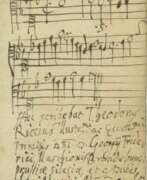

Teodoro Riccio was an Italian composer and Kapellmeister of the second half of the 16th century, who worked in Germany for most of his life.
Educated in church music, Riccio first worked as a Kapellmeister in the church of his hometown in Lombardy, where he composed his first madrigals. In 1575 he arrived at the court of Margrave Georg Friedrich of Ansbach-Brandenburg, to whom he dedicated a famous canon, and moved with the rest of the court musicians to Königsberg when the margrave became governor of the Duchy of Prussia in 1578. In 1585 Riccio was appointed Kapellmeister for life at the margrave's court.
Riccio's works are known mainly from printed sources, although several works survive in manuscripts in the Kremsmünster Abbey, the Koninklijke Bibliothek (Brussels), and the Nuremberg Archives.